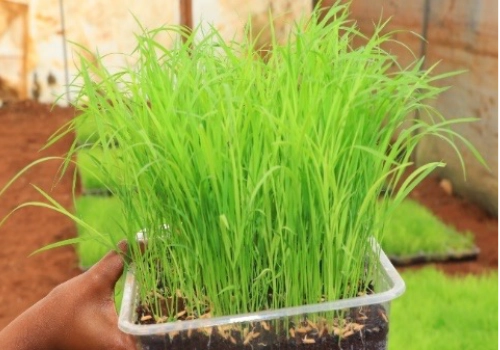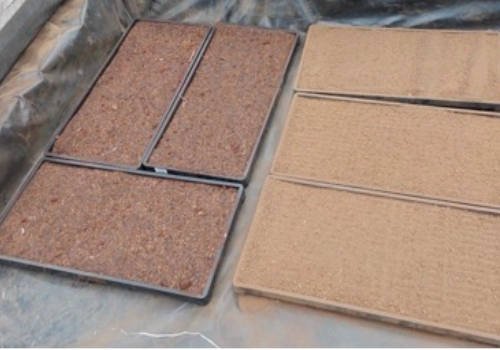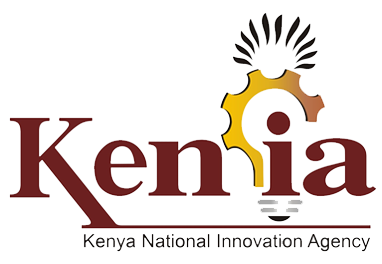The use of biofertilizers is a bio-based alternative to the Haber-Bosch chemical method of converting nitrogen to nitrates.
Unlike the latter, this approach results in minimal carbon dioxide release into the atmosphere, while promoting carbon sequestration through biochar. The Immuno-Booster seedling culture medium offers seedlings higher immunity against nematodes compared to conventional farmer seedlings. Biochar, which is made from carbonized rice husks, facilitates nutrient recycling back to rice fields. The formulation of the biofertilizer (BbF) is based on biochar, coco, and macadamia peats, which provide immunity against fungal diseases, thus reducing the need for fungicides and nematicides. Organic farmers, who avoid chemical fertilizers, prefer BbF, which has a favorable impact on the environment and creates jobs, especially for the youth. The affordability of BbF at KES. 2000.00 per 50kg bag, coupled with the creation of over 300,000 jobs, from the production of raw materials to the finished product, is a significant advantage. Additionally, the use of BbF mitigates the leaching of nitrates that pollute groundwater, rivers, ponds, and lakes, thus alleviating the difficulties faced by women who bear the burden of obtaining clean drinking water.
Research Summary and Technology
The proposed product, Fortified Bio-based Fertilizer (BbF), utilizes agro-waste as a carrier material for nutrients and is made disease-free through polymerization or sterilization using solar UV-light. The carrier material undergoes pyrolysis in a kiln, which not only increases carbon sequestration but also reduces carbon emissions from open burning, thus promoting a circular economy. BbF provides better nutritional value than animal and composite manures, and its nitrogen-fixing genes have been enhanced to achieve efficiency levels similar to chemical fertilizers. The biochar in BbF also helps immunize seedlings against nematodes and fungal diseases. A nitrogen booster is included in the product that involves growing nitrogen-fixing bacteria in a bioreactor and introducing them to legumes, clovers, or azolla ferns, resulting in efficient conversion to nitrate. An immuno-booster, made from agro-waste that has been pyrolyzed, helps seedlings resist nematodes and fungal pathogens. Trials on farmers in Mwea showed that seedlings treated with the immuno-booster medium had slightly higher yields than non-treated ones.


About the Researcher
WIPO IP Diagnostic Tool
WIPO IP Diagnostics is a free, intellectual property (IP) self-assessment tool that helps businesses identify their IP assets.
After you complete a section, a report that gives you recommendations and further information on IP and business competitiveness will be generated.



